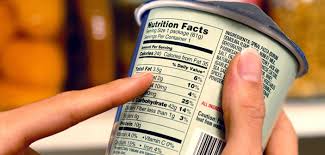
If not, you could face an unlimited financial penalty and/or a criminal conviction, which are likely to seriously damage or even ruin your business. With the upcoming political changes and fatal incidents involving incorrect or no labeling, the industry is now facing increased inspections and enforcement actions carried out by local governments. We decided to remind those involved in food chains (suppliers, wholesalers, retailers and shop owners) about the current labeling regulations and share our expertise to help achieve legal compliance.
Food labelling within the EU has grown in importance helping the consumers make purchasing decisions, particularly in relation the issue of language(s) in which the information needed to appear on labels. Prior to 2011, the primary aim for EU food law was to ‘achieve the free movement in the [EU] Community’ (Article 5.2 of the Regulation (EC) 178/2002) . Whilst the EU members had, pursuant to Article 14 of the EU Directive 79/112, the right to prohibit the sale of products which did not provide labelling ‘in a language easily understood by purchasers’ (i.e. English in case of the UK), there have been cases where such prohibitions (imposed at national levels, for example in Germany) were held to be a ‘restriction on the freedom of movement’ and, therefore, disproportionate.
However, since the Regulation (EU) No 1169/2011 (Regulation) came into force, the safety of food consumers has taken the overriding precedence. Article 15 of the Regulation requires that ‘mandatory food information shall appear in a language easily understood by the consumers of the Member States where a food is marketed’, placing the responsibility for enforcement on the EU Members. In the UK this task has been passed down onto local governments through the Food Information Regulations 2013 accompanied also by the Food Law Code of Practice (Code).
In the UK, the obvious requirement is for labels to be in English (as an absolute minimum) but, as a comparison, Belgian law is even more restrictive (and therefore challenging for food operators) where the language required will differ depending on the region of Belgium.
Regardless of whether you are supply, import or sell foreign food in the UK (together defined within the Regulation as food business operators) , you have to take the appropriate steps to comply with the Regulation, all to protect public health and provide assurance to consumers.
But, unfortunately, the expectations will vary depending on the place within a food chain and (!) on the local authority. The Code does not offer any definitive guideline really, particularly for those supplying foods to ethnic minorities living in the UK, i.e. Poles.
Experience has shown that in most cases where branded (not the wholesaler’s own label) product is involved, putting pressure on suppliers, the maintenance of accurate and current information or even education of shop owners is extremely difficult and can be, at times, impractical.
What is considered appropriate by one authority may not necessarily be upheld by another and, at times, this may produce confusing and unfair result. Whilst the Code requires the officers to “… offer advice where it is appropriate or is requested, and should encourage food business operators through an educative approach to adopt good practice” [para 5.2.2.1], the reality is that food businesses are struggling when dealing with local governments. And now more than ever before, food safety teams are very keen to exercise their enforcement powers (i.e. improvement notices, prohibition, directors’ disqualifications, compensation orders, seizure, prosecution) to justify their existence or just for publicity.
Whilst appeal procedures are available, the process is very demanding and often costly as local officers do not back down easily. We also see that local governments have started to co-operate, refer and exchange information and evidence in order to secure more convictions. This puts even more pressure on food operators in the UK.
It has been suggested that leaving the EU could present the UK the opportunity to set its own, more efficient and realistic regulations for labeling that would address the existing difficulties. But this could not happen overnight so we think that on the day the UK leaves the EU in March 2019, the Government is likely to adopt the existing EU rules. And if there were changes to be made, based on what we have seen so far, these will only be stricter, meaning that food businesses should get compliant now.
Having advised many local and international clients on food labeling in the UK (including successful appeals against some aggressive local governments), we can offer you a complete UK-labelling health check and make appropriate recommendations. There are various methods and tools that can help you achieve compliance to protect the future of your food business or, if you are already facing enforcement, represent you to achieve the best possible outcome.
If you are interested, please contact us Kamil Tomaszewski in our company and commercial team 0330 107 0106 or email k.tomaszewski@imd.co.uk.
This article is for general information only and does not constitute legal or professional advice. Please note that the law may have changed since this article was published.